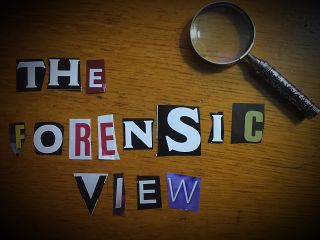Forensic Psychology
What Forensic Psychology Can Learn From Alien Abductions
Research on imagined alien abductions could further criminal justice science.
Posted July 3, 2023 Reviewed by Devon Frye
Key points
- Forensic psychology helps to explain many aspects of paranormal "encounters"—but can the reverse be true?
- Paranormal reports of alleged alien abductions may help us to understand more prosaic forensic issues.
- Individual differences observed in the psychology of the paranormal are also important in the forensic realm.

In previous posts of the Forensic View, we have sometimes gone "outside the forensic box," demonstrating, for example, how the analysis of paranormal phenomena (Bigfoot, UFOs, etc.) can benefit from an approach based in forensic cognitive science. Information gleaned from criminal justice research is frequently helpful in other areas of psychology, including those concerned with the paranormal.
Yet we can also invert this idea. How can forensic cognitive science benefit from considerations of the psychology of the paranormal?
Consider a closely related question. Having taught the history of psychology for many years, I am resignedly accustomed to the oft-repeated student question of why anyone would want to study the history of psychology in the first place.
There are three good reasons for this study. First, we learn to avoid the explicit errors of the past. Second, we learn to avoid implicit errors, frequently resulting from local zeitgeist; but third, and perhaps most important, we learn about the extremes. The history of psychology tells us about the extraordinary variability of human behavior and the variability of psychological ideas.
Take ideas of good and evil. We needn't get into the complexity of certain ancient ideas, in which good was political order and evil was chaos; let's deal with simpler questions, perhaps best highlighted in the realm of homicide.
Although many modern psychologists take issue with concepts of good and evil at all, we can at least admit that most of us would prefer to avoid the homicidal attentions of serial killers. People who kill repeatedly for their own gratification, and keep the bits and pieces around as souvenirs, seem to lie outside the concept, defended vociferously by the humanist Rousseau, that humans are essentially good, at least in the modern Western sense.
Yet we are faced with the disturbing historical precedent of Ashurnasirpal II, the third king of the Neo-Assyrian Empire, who leaves us with the following fascinating resume entry:
"…I flayed all the chiefs… and I covered the pillar with their skins. Some I impaled on stakes…I cut the limbs off… I cut off their noses, their ears, and their fingers… I made a pillar of heads…" (Mark, 2009).
Whether we wish, technically, to consider Ashurnasirpal a "serial killer" or not, he did this sort of thing every year. Not surprisingly, lots of people did not want to get on his bad side.
He kept "souvenirs," he killed repeatedly, and he showed absolutely no remorse. Then he put up signs letting everybody know he'd done it.
For an ancient king of Assyria, was this very nasty pattern of behavior symptomatic of psychopathology—or was it essentially a job description? Well, his repeated mass homicides scared the hell out of everybody; and as a result, they kept paying their taxes.
Stalin scared people, too. So did Hitler, as did Genghis Khan and a veritable horde of other dictators past, present, and, sadly, almost certainly future.
Sometimes horrifying behaviors correspond with accepted concepts of psychopathology; but at other times, and in other places, those behaviors may have similarly horrifying adaptive and profitable significance. At the extremes. The history of psychology teaches us a great deal about these extremes, about what the human nervous system can do when it tries; and this brings us back to our original question.
What can forensic cognitive psychologists learn from the study of psychological responses in the paranormal realm?
Many people have seen UFOs in the sky, because a UFO is simply something we can't identify up there. If you're outside at night, and you're not an astronomer or meteorologist, you'll often see odd bits and pieces in the sky—oddball clouds, unexpected planets, far-off nebulae, artificial satellites, and whatnot—that you really can't identify.
But an extreme in the UFO realm is to be actually abducted by the aliens and taken into space in their UFOs, and there are a lot of people out there who will tell you that that's exactly what happened to them.
What exactly is going on here? Well, let us charitably assume neutrality concerning the actuality of flying saucers and the aliens who drive them. However, an important but perhaps inadequately cited paper by Clancy et al. (2002) may shed some light on the psychological provenance of these abduction incidents.
Without commenting on the potential reality of the flying saucers or of the Klingons, Clancy et al. found that those who reported recovered and repressed memories of alien abduction were in fact more prone than control participants to exhibit false memories. Moreover, these false memories were in fact significantly predicted by hypnotic suggestibility, depressive symptoms, and schizotypic tendencies. Research in my own laboratory is consistent with these results (see Sharps, 2022).
How do these findings inform the application of psychological principles to the forensic realm? Well, believing that one has been abducted by space aliens is, quite frankly, one hell of an extreme experience. The eyewitness processes involved must operate in a much more extreme context, internally or externally, than one would encounter in an everyday mugging or robbery.
The criminal justice system relies to an extraordinary degree on eyewitness accounts; but as we see here at the extremes, in the realm of alien abduction (and it doesn't get much more extreme than that), psychological factors contribute directly to the formation and maintenance of false memories.
This strongly implies that similar processes operate in the more prosaic realm of eyewitness memory in the criminal justice system. Studies of the psychology of alleged alien abductions demonstrate that individual psychological differences clearly influence eyewitness processes and reports. However, at the present time, these factors have been virtually ignored in legal proceedings, and are typically ignored in the realm of criminal investigation.
Yet what we see at the extremes, in realms as subjectively bizarre as that of alien abduction, is very likely to operate, at more subtle and therefore potentially less detectable levels, in the more prosaic realm of the criminal justice system.
Psychologists and other professionals dealing with the criminal justice realm should probably take note.
References
Clancy, S.A., McNally, R.J., Schachter, D.L., Lenzenweger, M.F., & Pitman, R.K. (2002). Memory Distortion in People Reporting Abduction by Aliens. Journal of Abnormal Psychology, 111, 455-461.
Mark, J.J. (2014, July 09). Ashurnasirpal II. World History Encyclopedia. Retrieved from https://www.worldhistory.org/Ashurbanipal_II/2023, June 27.
Sharps, M.J. (2022). Processing Under Pressure: Stress, Memory, and Decision-Making in Law Enforcement. Park City, UT: Blue 360 Media.




